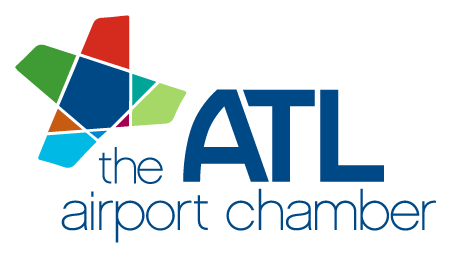Lockheed Martin (NYSE: LMT) leaders announced today the LMXT strategic tanker aircraft will be manufactured in Mobile, Alabama, and Marietta, Georgia. Introduced in September 2021, the LMXT is Lockheed Martin’s offering for the U.S. Air Force’s KC-Y “Bridge Tanker” Program competition.
“Establishing this production work in Alabama and Georgia confirms Lockheed Martin’s commitment that the LMXT will be built in America, by Americans, for Americans,” said Lockheed Martin Chairman, President, and CEO James Taiclet. “The LMXT will strengthen global security by enabling our U.S. service members to carry out their most critical missions at extended ranges. At home, the LMXT will strengthen job growth and manufacturing by drawing on the experience and talents of a high-tech American workforce in two states that are proven leaders in aviation.”
The LMXT represents the newest chapter in Lockheed Martin’s 60-plus year history of producing and delivering tanker and large aircraft for the U.S. Air Force, U.S. Marine Corps, U.S. Navy and multiple operators around the world. Built on the combat-proven design of the Airbus A330 Multi Role Tanker Transport (MRTT), the LMXT leverages known performance and capability insights from the strategic tanker of choice used by 14 nations around the world to currently refuel fighter, transport and maritime patrol aircraft for the U.S. and allied partners.
“Over our 50-year history in the U.S., some of our proudest moments have come from supporting our American service members,” said C. Jeffrey Knittel, chairman and CEO of Airbus Americas. “Our U.S. workforce, which is more than 35% military veterans, is eager to see an Air Force tanker join the fleet of Airbus aircraft flying for the U.S. Army, National Guard, Navy and Coast Guard.”
With Lockheed Martin as the prime contractor, the LMXT will be built in two phases:
Phase 1: The LMXT is first produced as an A330 airliner at Airbus’ Mobile, Alabama, facility, which is where Airbus A320 and A220 commercial airliners are built, beginning with the A320 in 2015.
Phase 2: The second phase of the manufacturing process includes converting the commercial aircraft into the LMXT tanker at Lockheed Martin Aeronautics’ Marietta, Georgia, facility, which is currently home to the C-130J Super Hercules final production and F-35 Lightning II center wing assembly lines.
Lockheed Martin and Airbus entered into a Memorandum of Agreement (MOA) in 2018 to explore aerial-refueling solutions to address any refueling capacity shortfalls for the U.S. Air Force, with the MRTT at the center of its discussions. The LMXT is a result of this MOA, offering a proven airframe with distinct U.S. Air Force-only capabilities built by a highly skilled American workforce in two states that lead the nation in aerospace manufacturing.
The expansion of work by both Lockheed Martin and Airbus in Alabama and Georgia is a natural progression for the companies, with each having deep roots in both states.
Lockheed Martin’s presence in northern Alabama spans more than five decades, with a concentration in the rotorcraft and hypersonics sectors. More than 2,600 Lockheed Martin employees live and work in Alabama. In October 2021, Lockheed Martin opened an advanced production facility in Courtland focused on hypersonic strike production.
More than 5,000 Lockheed Martin employees support work at its Aeronautics facility in Marietta as well as in other facilities in Macon and Kings Bay. A leader in Georgia’s aerospace industry, Lockheed Martin’s Marietta facility has produced some of the most well-known military aircraft since 1951 to include every production C-130 Hercules (2,600-plus), the C-5 Galaxy/Super Galaxy, the P-3 Orion, the F-22 Raptor and the C-141 Starlifter. More than 4,500 employees currently work at the site.
Lockheed Martin’s economic impact across Alabama and Georgia totals more than $8.3 billion annually to include total sales, supplier dollars, employee payroll, taxes and charitable donations. More than 630 suppliers across both states support Lockheed Martin programs. In 2020, Lockheed Martin Aeronautics contributed more than $2.6 million in both states supporting military, education and community-based organizations.
Airbus has been assembling commercial aircraft in Mobile since 2015, and in just the first five years of operation had a total economic impact in Alabama of $1.2 billion and more than 15,000 jobs, through construction and payroll alone. Airbus is also engaged with more than 40 local charitable and civic organizations in the region, investing both time and money in the local community.
The LMXT offers a proven airframe with distinct U.S. Air Force-only capabilities designed to meet operator requirements, with advantages that include:
Significantly improved range and fuel offload capacity over current tankers
A proven fly-by-wire boom currently certified and used by allies to refuel U.S. Air Force receiver aircraft in operations around the world
The world’s first fully automatic boom/air-to-air refueling (A3R) system
Operational and combat proven advanced camera and rear vision system
Open system architecture JADC2 systems
Established allied interoperability and resilient global supply chain
A multi-domain operations node that connects the LMXT to the larger battlespace, increasing onboard situational awareness to provide resilient communications and datalink for assets across the force
A permanently installed aeromedevac suite enabling world-class medical care with intercontinental reach
Forklift accessible cargo capacity for six military pallets with weights of up to 70 k/lbs. for austere base support
Unrivaled persistence in the battlespace and operational performance enabling greater access to non-traditional bases
As the prime contractor, Lockheed Martin works directly to implement U.S. Air Force-specific requirements within the LMXT. For additional information, visit the LMXT website: www.lockheedmartin.com/lmxt.
Article courtesy of Atlanta Metro CEO, published February 1, 2022.

